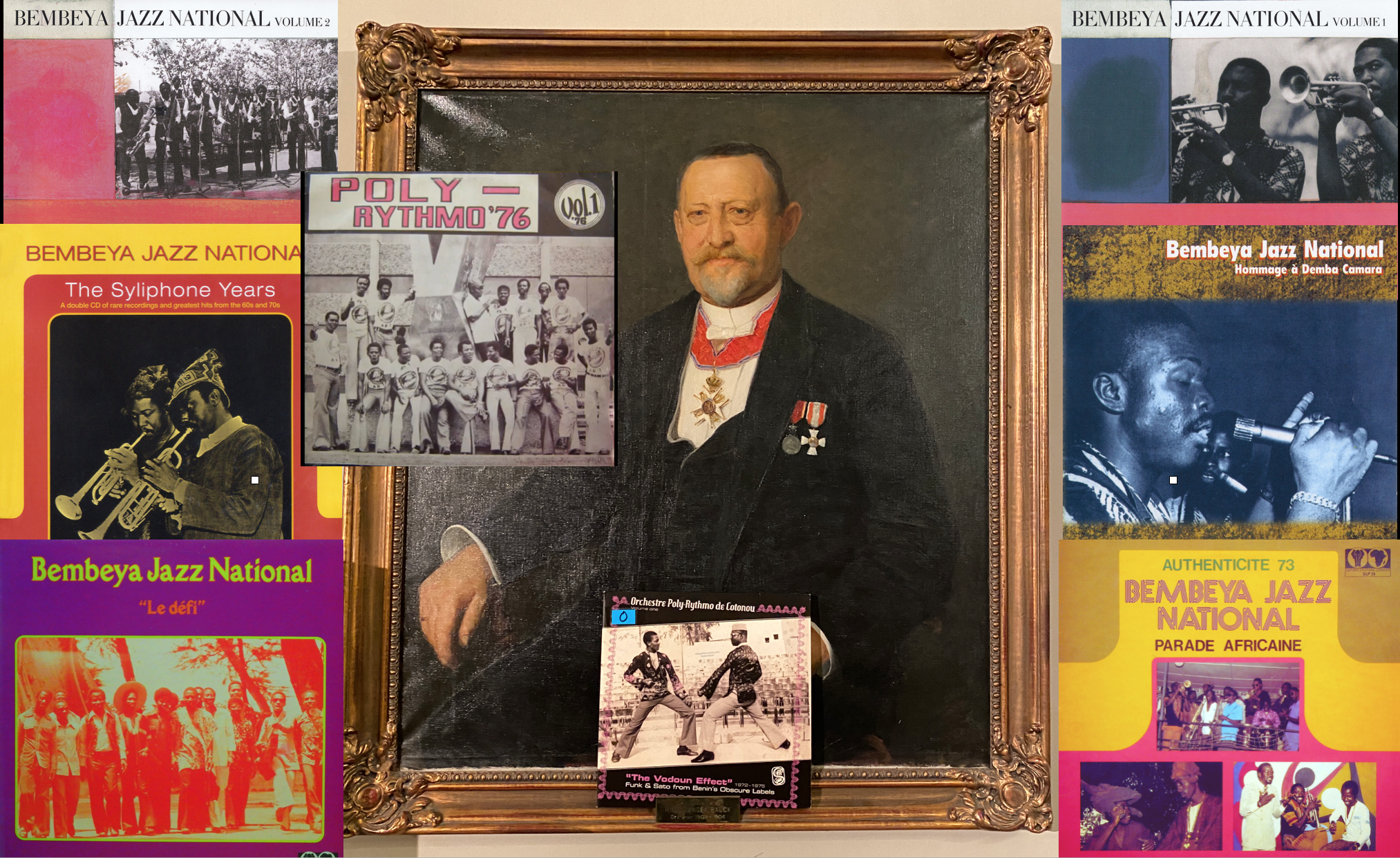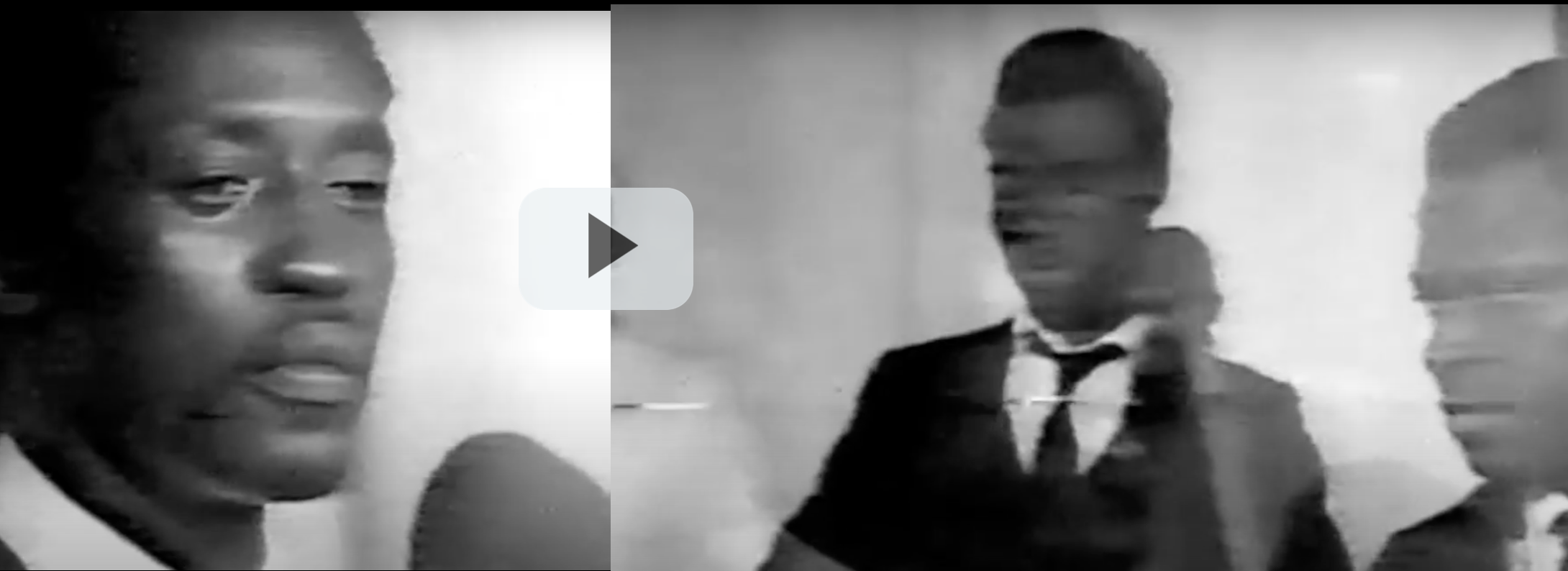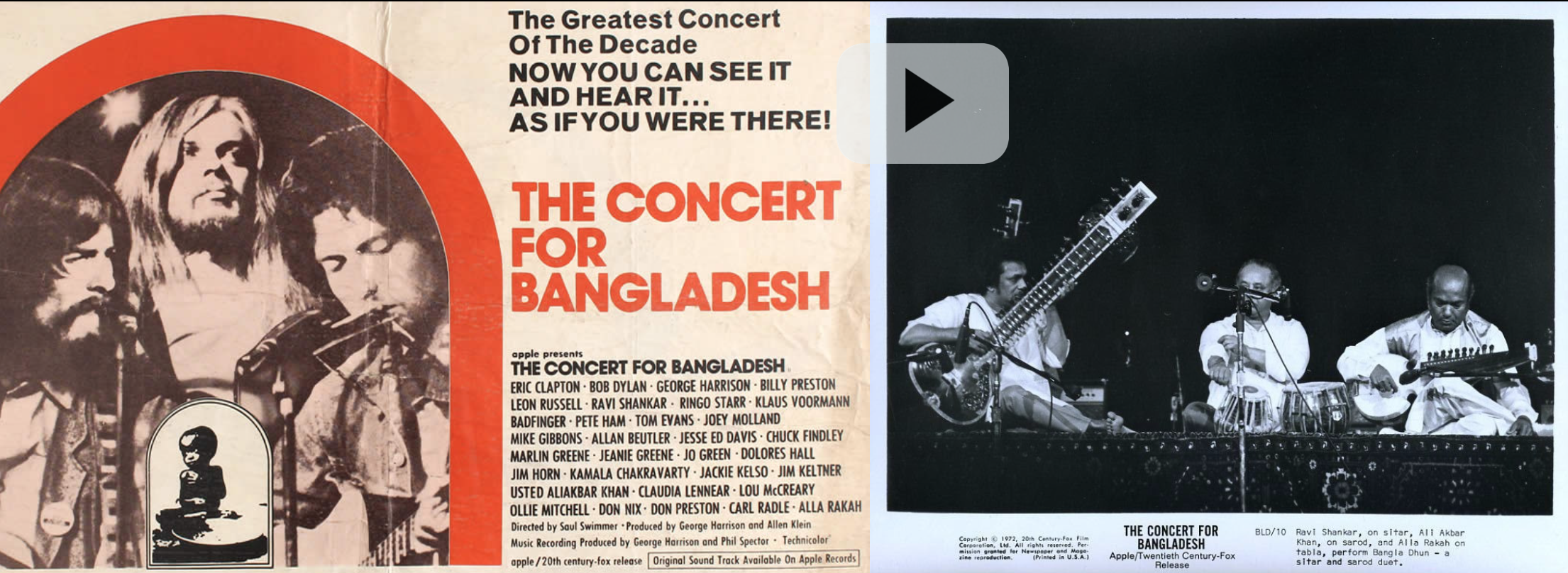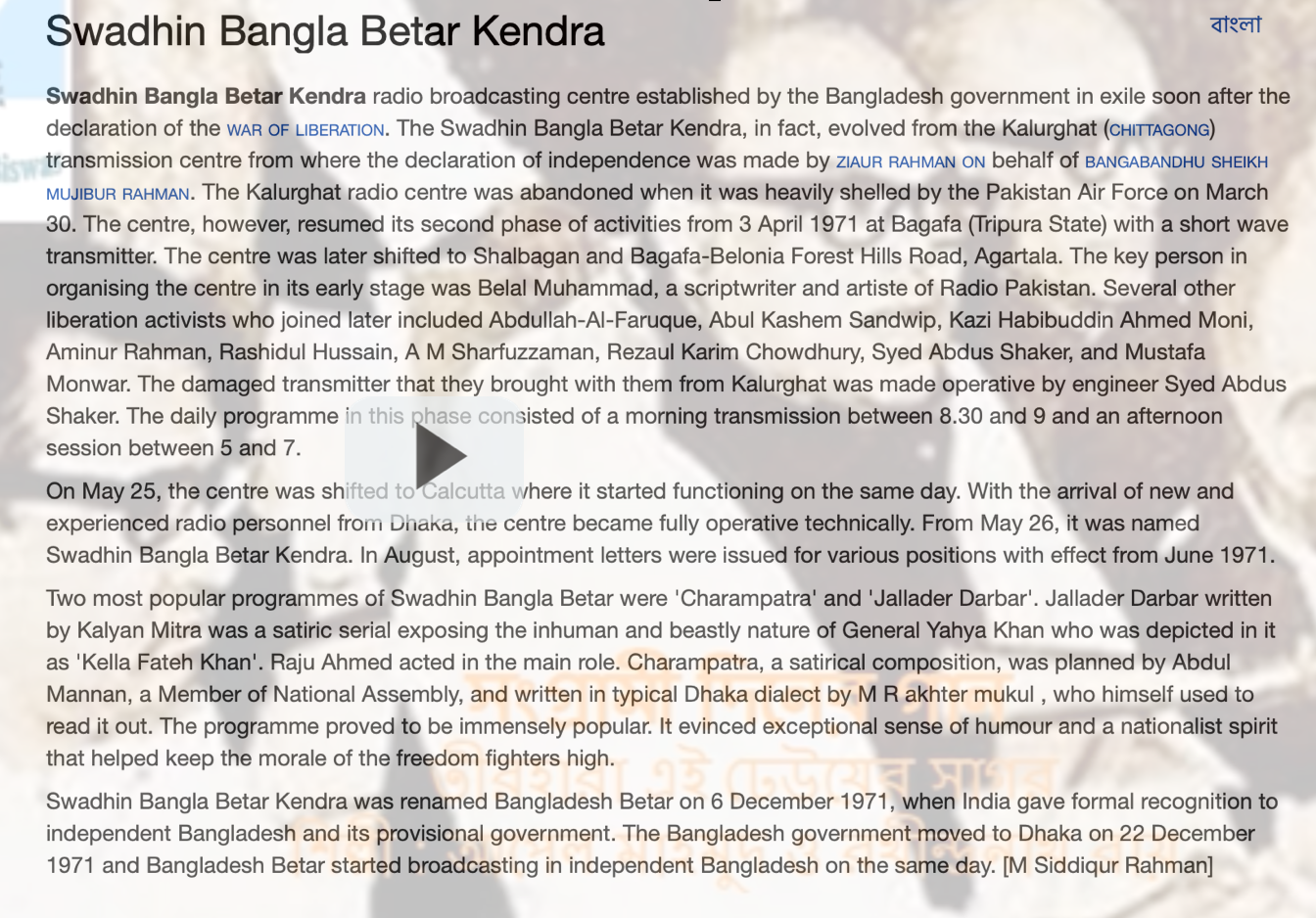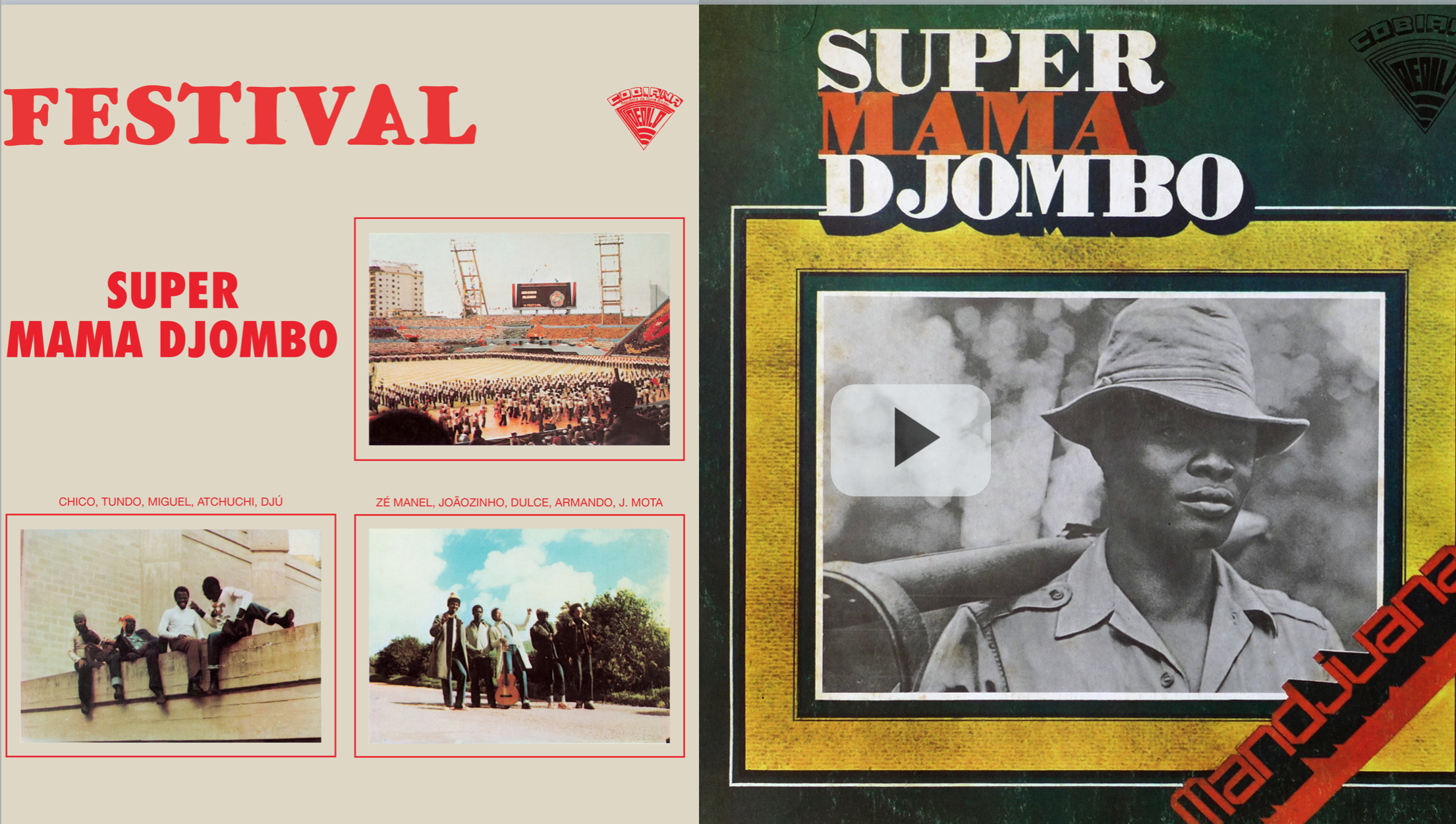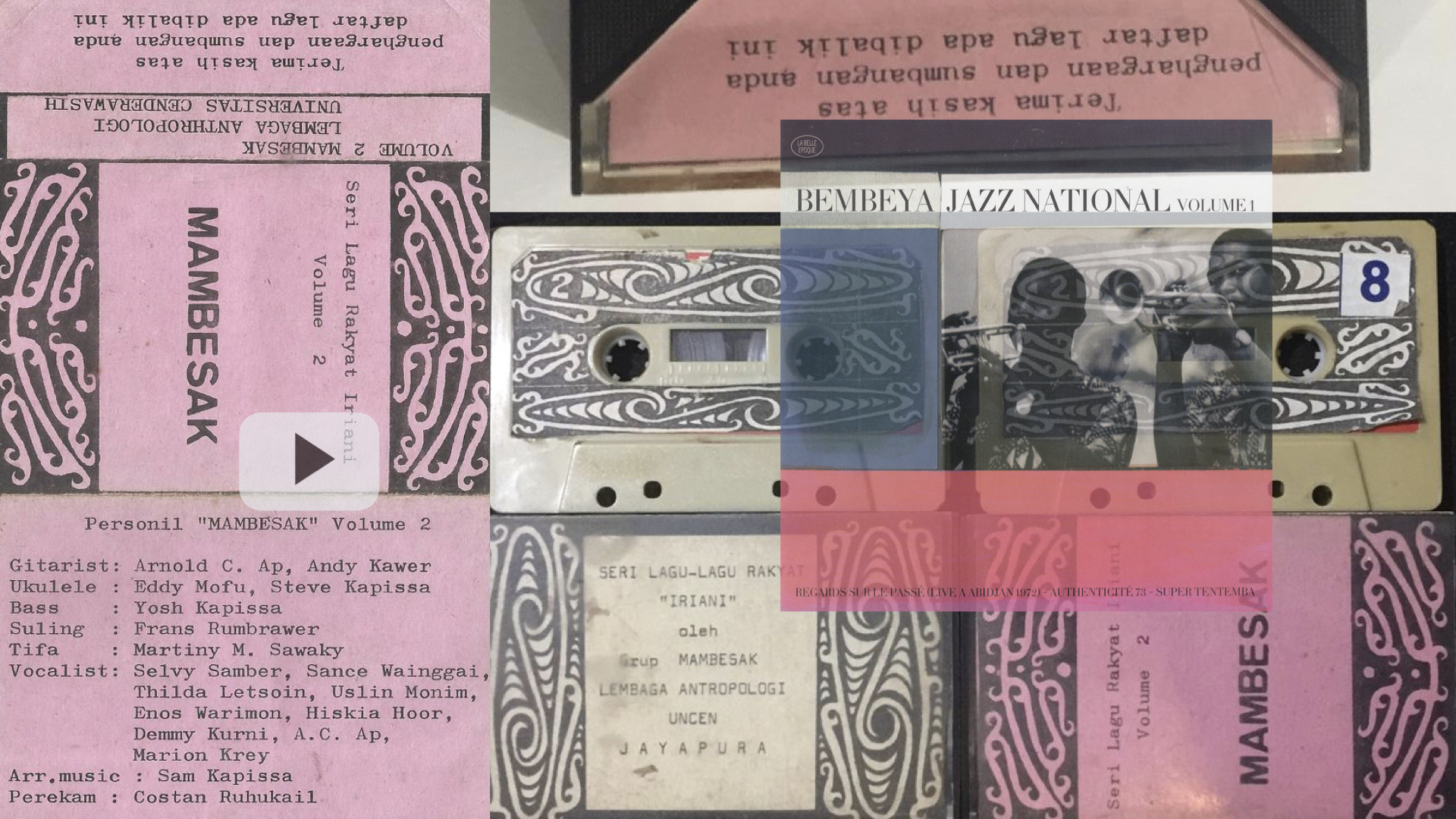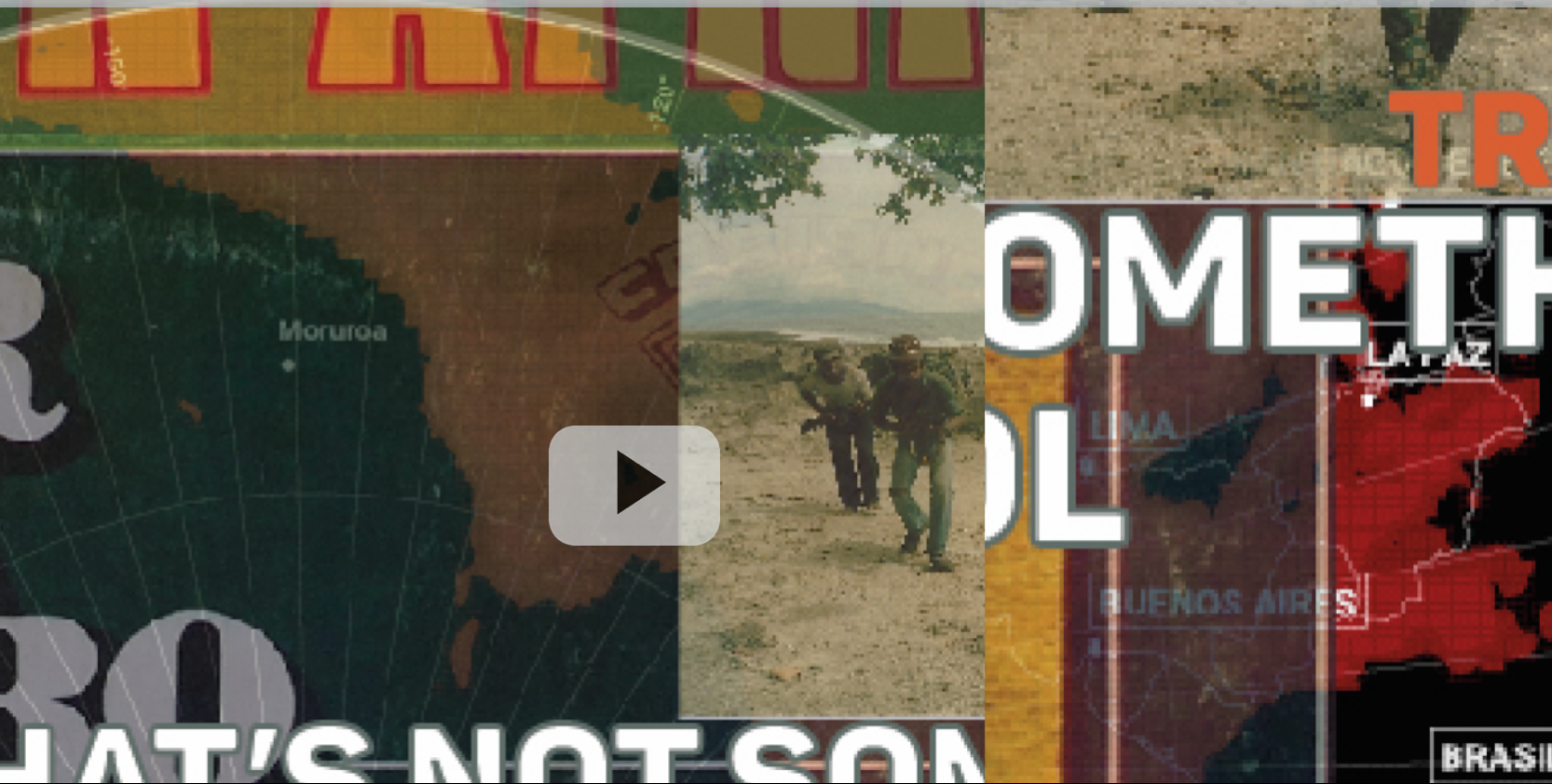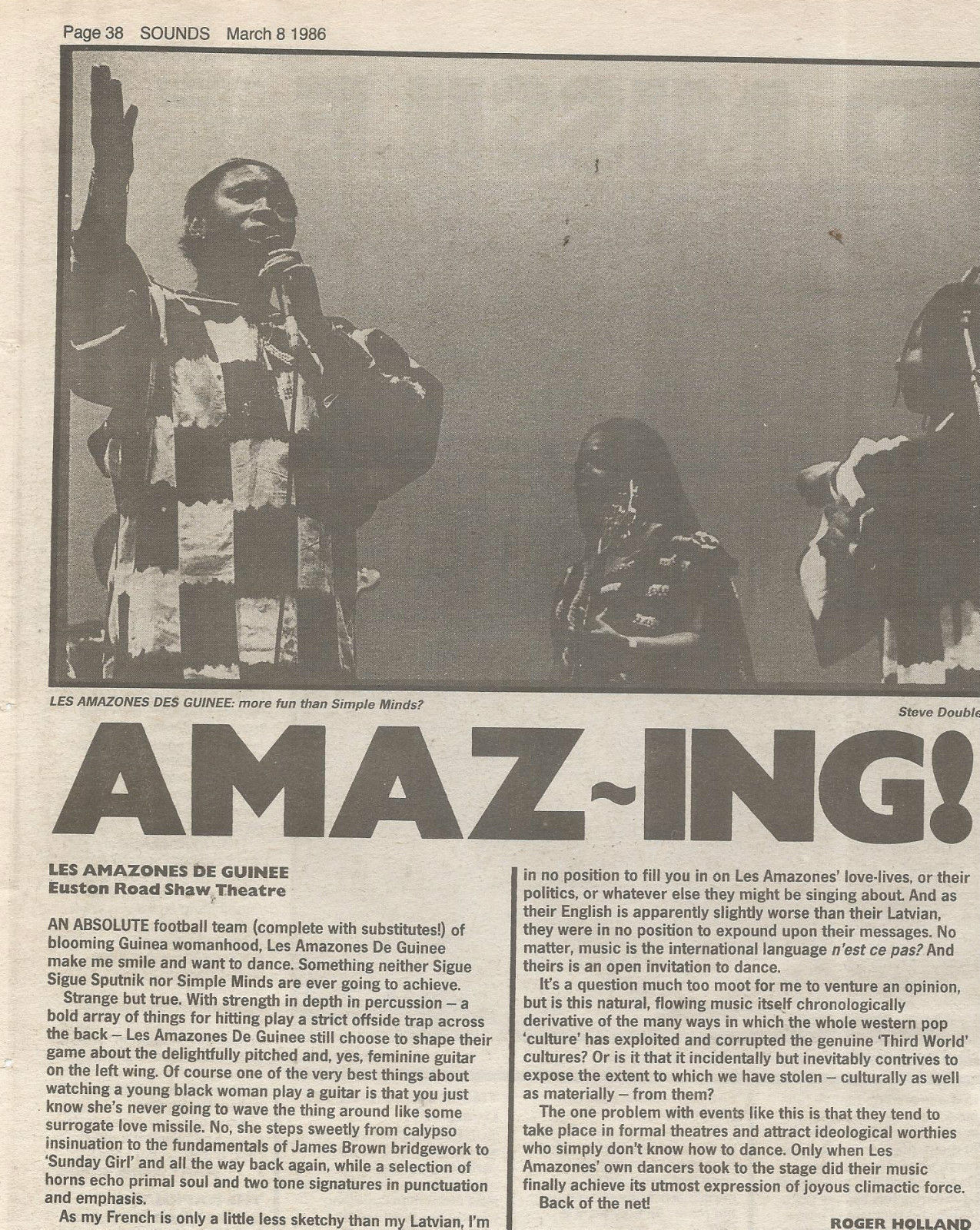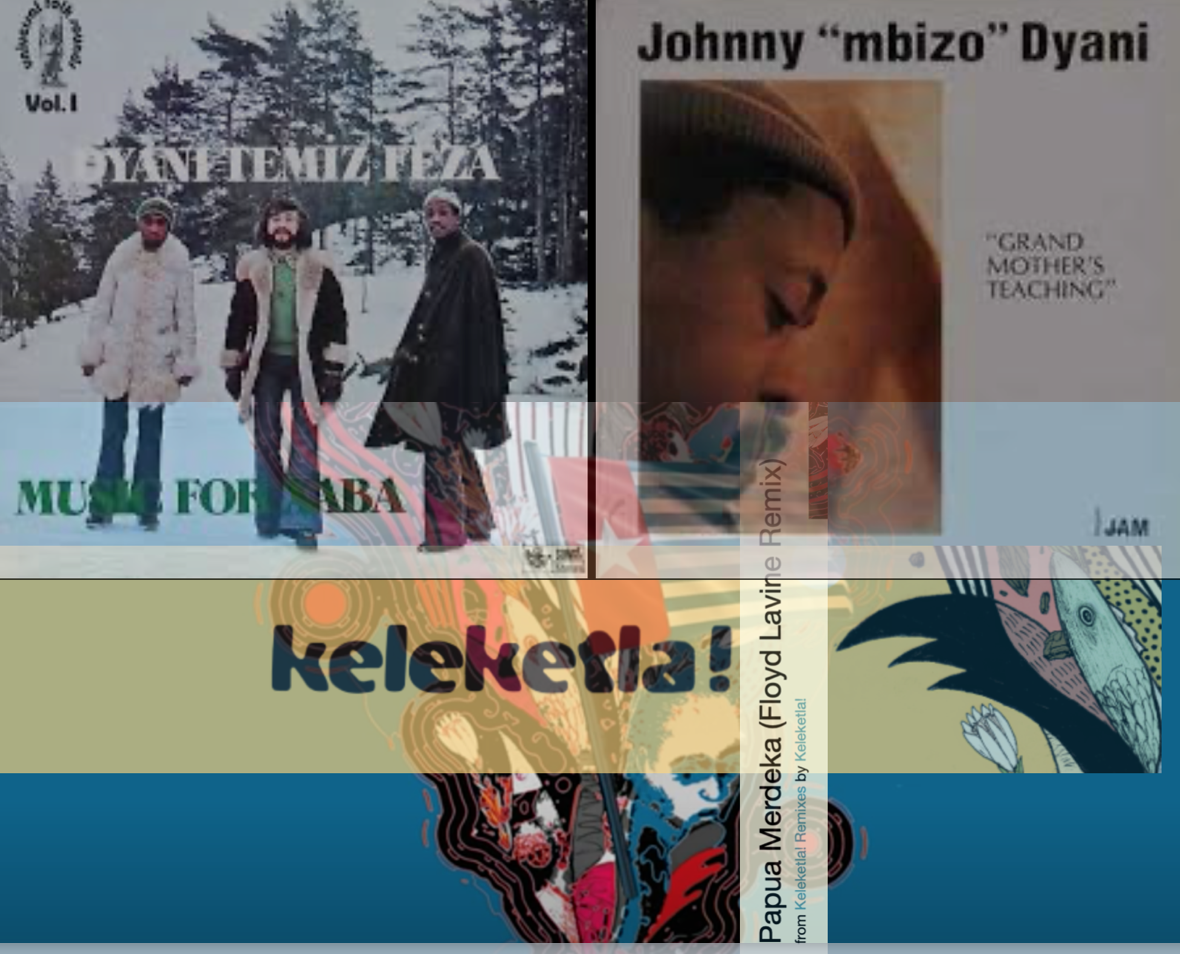Faire du Monde
going on a historic, revolutionary sounding world tour, but also making, creating worlds, with a series of Intros leading to an Outro ... because that's not something you learn at school. An evening class listening session with Annett Busch and Nabil Ahmed, following some personal, some environmental and some work related routes, with resonating struggles and conflicts, from Senegal via Guinea Bissau to Papua New Guinea via Bangladesh, South Africa and back again. The images provide links to songs and some stories and thoughts informed by stage performances and beats guiding through the evening ....
INTRO with Orchestra Poly Rythmo de Cotonou
a record, surprisingly found in the Trondheim library which was in a way the starting point for the Slow Education listening sessions in collaboration with Stian Stakset and the public library. The following selection of tracks is mainly based on which records were available in the library, other tracks only came into play through a response and are played from other online sources.
INTRO 2.0. Orchestra Baobab: Utrus Horas (1982) &
and what a song, an album can do -- it reached us with a delay, still pre-internet, in form of a CD in the mid 1990s in Cologne and set us in motion, it set us on a search, a research, it made us travel...
Utru ora n ta misti pega tras di sol / Sometimes I want to follow the sun / Ma n ka ta bai pabia tras di sol n ka kunsidu / But I won't go, because along the path of the sun I'm not known / Utru ora n ta misti pega tras di sol / Ma n ka ta bai pabia tras di sol n ka kunsidu / Ka no seta e ngananu / Let's not fool ourselves / Lua oi ki di nos / The moon, that one is ours / Si no pertu lua no ka ta kema / If we get close to the moon we don't get burned ...
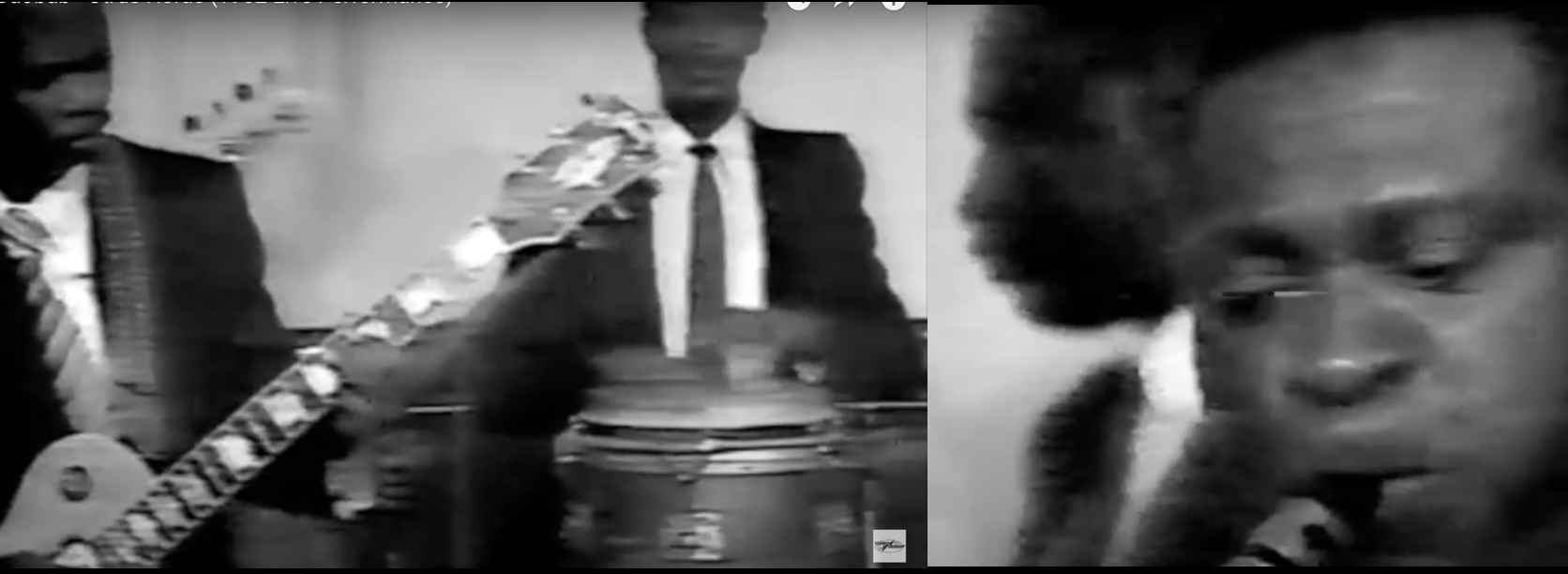
Members of orchestra Baobab: Balla Sidibé (1942-2020), Issa Cissokho (1946-2019), Rudy Gomis (1946-2022), Baro N'Diaye, Laye M'Boup (-1974), Latfi Benjeloum, Barthélémy Attisso, Sidath Ly, Medoune Diallo, Ndiouga Dieng, Thione Seck (1955-2019), Peter Udo, Papa Ba, Mapenda Seck, Moussa Kane
For further reading: Katharina Lobeck-Kane: Looking back with Baobab (a collage of statements from band members, 2009) // Patrick Labesse: Old baobab trees never die!
.... to Dakar. Searching for beats from the past, we encountered lyrics searching for a future. Here, as another intro, coming from two different, not necessarily contradicting poles of the same place with a wide musical spectrum.
Positive Black Soul: Boul Falé (1992)
A short history of Hip Hop in Senegal by Keyti on musicinafrica.net
"In the history of music in Senegal, the meteoric rise of rap music is probably one of the most interesting phenomena to witness. For several decades, rap music has become the true voice of the youth and is now accepted as an art. Furthermore, it has proven to be a powerful force capable of persuading and mobilizing the masses. This makes it the most controversial music genre in Senegal."
And it's feminist rap-version already aired as a tv series, WALABOK (2021) written and directed by Fatou Kandé Senghor.
In a parallel time zone, from a different place, a new point of departure... INTRO 3.0. The mother of all benefit concerts: Concert for Bangladesh
August 01, 1971 at Madison Square Garden in London
And crucial for any good liberation movement, is to have a free, independent radio station ...
INTRO 4.0. Super Mama Djombo: Dissan na Mbera (1980)
Moving along, towards Guinea Bissau via a compilation, just ordered by the Trondheim library, Golden Afrique, released in 2014 and compiled by Christian Scholze, Günter Gretz (a courageous facilitator and producer of African music, based in Frankfurt/Main already on the WoA passenger list) and Jean Trouillet.
Quoting from the liner notes: Guinea-Bissau achieved independence in the wake of the Portuguese Carnation Revolution in 1974, following a long struggle. Super Mama Djombo are the children of independence; the band was founded at the time on the initiative of the PAIGC and was the party's musical flagship for a long time. Like the bands in Mal and Guinea, it was created as part of the government's push to foster modern music as a major factor in shaping national identity. Mama Djombo was the name of the guardian angel most frequently invoked by the guerrilla fighters. Singing mainly in Kriol, a blend of Portuguese and local languages, with an updated Gumbe rhythm and a firm determination to contribute to the harmony between all the countries ethnic groups, they became an almost overnight success. But as the ruling party swiftly squandered its political capital by indulging in blatant nepotism, they also voiced their criticism. "Dissan na M'bera", sung by Dulce Nevs, the band's only female member, is from their first album "Ba Cambança", recorded in Portugal in 1980, which takes a critical look at political developments since independence. The band calls on the government to respect the sacrifices made by the people for their liberation. In the chorus, they sing: "Let walk on this side of the street / Don't rund me over with a state limousine". The government was not amused. Super Mama Djombo's other LPs were no less critical. They disbanded in 1986.
a revolutionary band committed to imagining and building the nation through song
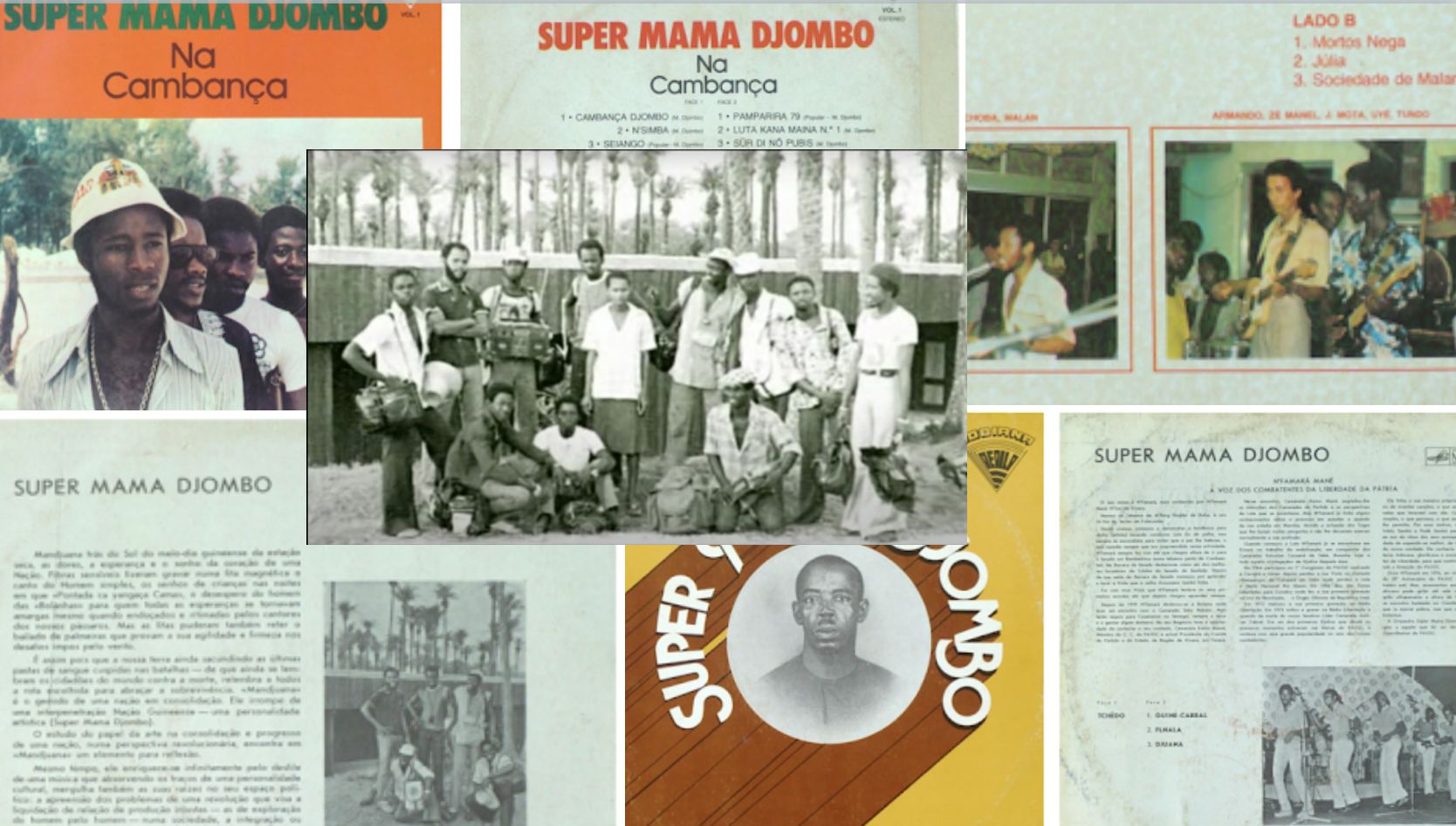
Founding members: Zé Manel (Drums), Herculano (Vocal), Gonçalo, Taborda (Bass) Medina (Vocals), Chico Karuca (Vocal,Bass).
During the 1980 recording session in Lisbon with Adriano Atchutchi (Composer, Bandleader), Miguelinho (Lead Guitar), Tundo (Lead Guitar), João Mota (Lead Guitar), Chico Karuca (Bass Guitar), Serifo Banoro ( Rhythm Guitar), José Manel (Drums), Uié (Percussion), Armando (Percussion), Malam (Vocal), Herculano (Vocal), Lamine (Vocal), Baba (Vocal), Tchobosky (Vocal), Dulce Neves (Vocal).
Further Reading:on afroriginal.blogspot.com // short documentary (2018) available on france24 // La résurrection du légendaire Super Mama Djombo ! on rfi
INTRO 5.0. Mambesak (1978) fading into Bembeya Jazz National: Super Tentemba (1973)
more from Mambesak on soundcloud.com
followed by ANGELO Ariitai protesting with Ta'ero Atomi (1995) against nuclear colonialism
Apropos "We don't play guitars" — these Ex-commandantes do: an interlude with Les Amazones de Guinée: Samba (1983)
Bonus Track: MCKay with January Money (ca 2010) from the Niger Delta Mixtape released via afropop.org and William Onyeabor, a real electronic innovator and entrepreneur from Nigeria.
OUTRO-Double and South-South connections: Johnny Dyani with Grandmother's Teaching (1982) and keleketla with a Floyd Lavine Remix of Papua Merdeka (2020)

